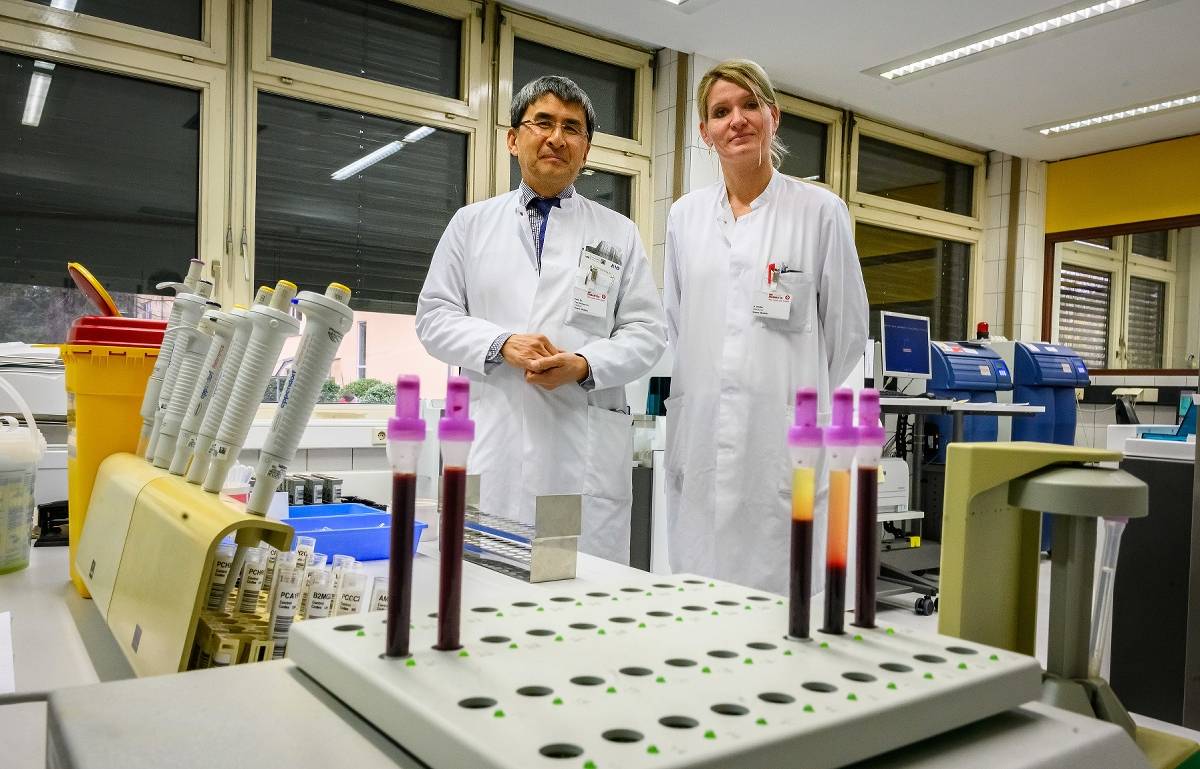Hospital waiting for virus sample Bonn prepares for corona pathogens
Bonn · The hospitals in Bonn are preparing for the diagnosis of the corona pathogen from China. They are working closely with the Charité in Berlin and/or with a laboratory in Cologne.
The hospitals in Bonn are prepared in case that a patient infected with the new corona virus is admitted. Virologists such as Christian Drosten, who used to work at the University Hospital (UKB) in Bonn and is now working at the Charité hospital in Berlin, do not regard the situation as frightening, but as serious.
Hendrik Streeck, Director of the Institute of Virology at the UKB, also told the GA: "The current risk of contracting the new corona virus is low so far.“ Nevertheless, the University Hospital in Bonn has decided to prepare everything during the course of the week in order to establish a detection test developed in Berlin at the Charité in Bonn as well. In the next few days, a positive sample of the pathogen, which was first detected in China and subsequently in other Asian countries and the USA, will be sent to Bonn by the Charité. This sample is necessary to prepare and carry out the test series in the laboratory. Streeck assumes that the demand for these tests will increase, also out of concern due to media coverage.
Important information about the virus and new scientific findings are currently being published by the Robert Koch Institute (RKI), which is responsible for the project. This institute is a key player in infection prevention issues within Germany and, as an institute of the Federal Ministry of Health, it is also the authoritative source of directives. Isabel Klotz from the Bonn press office said that the municipal health department had informed hospitals and doctors in private practice about the institute's recommendations. The World Health Organization (WHO) is constantly reassessing the current situation.
The Robert Koch Institute has published an orientation guide for doctors, which already existed in a similar form for the Sars virus. "In case of suspicion, we act analogously to these guidelines and patients are isolated and medically cared for according to the guidelines," said Anja Wallau, senior physician and hospital hygienist at the Johanniter and Waldkrankenhaus hospital. The hospital staff is currently required to ask patients if they have been in China in the past 14 days or if they have had contact with people who have been in the Wuhan region. In addition, isolation in single rooms and treatment would be carried out under increased hygiene requirements until the diagnosis is clear. "We would send a smear test to the Charité in Berlin according to the current status," Wallau explained.
The community hospital Bonn with the houses St. Elisabeth and St. Peter, the GFO clinics, responsible for Marienhospital, St. Josef and houses in Bad Honnef, Troisdorf and Brühl, as well as the Malteser Hospital, also see themselves as being prepared. "The medical team, the nursing staff and especially the department for hospital hygiene are prepared for patients with special pathogens such as these," the community hospital announced. Experts at the Charité are available for consultations on possible therapy.
Edith Fischnaller, chief physician for hospital hygiene at the GFO clinics, emphasized: "We are in close coordination with the health authorities. If a case should occur, hospitals are obliged to inform the responsible health authority. The authority in turn would decide how a patient should be treated further. For example, the patient could be transferred to the university hospital, which has a larger number of isolation wards. Tim Flasbeck, head of emergency medicine at Malteser Hospital, told the GA that it is not appropriate to panic, but to overlook something would again be negligent. The staff are instructed to look carefully at the diagnosis. In contrast to a disease caused by influenza viruses, the upper respiratory tract is not affected by corona virus according to current knowledge. "The patients do not have a cold, for example."
Precisely because influenza occurs more frequently at this time of year, shows similar symptoms and is also treated in isolation rooms, "we must take care to fill the isolation rooms sensibly and not fill them up pointlessly", said Flasbeck. Meanwhile, Malteser International is working with a laboratory in Cologne which, according to Flasbeck, will be able to test a smear or a secretion sample from the respiratory tract for corona virus as of next week.
Original text: Philipp Königs
Translation: Mareike Graepel




